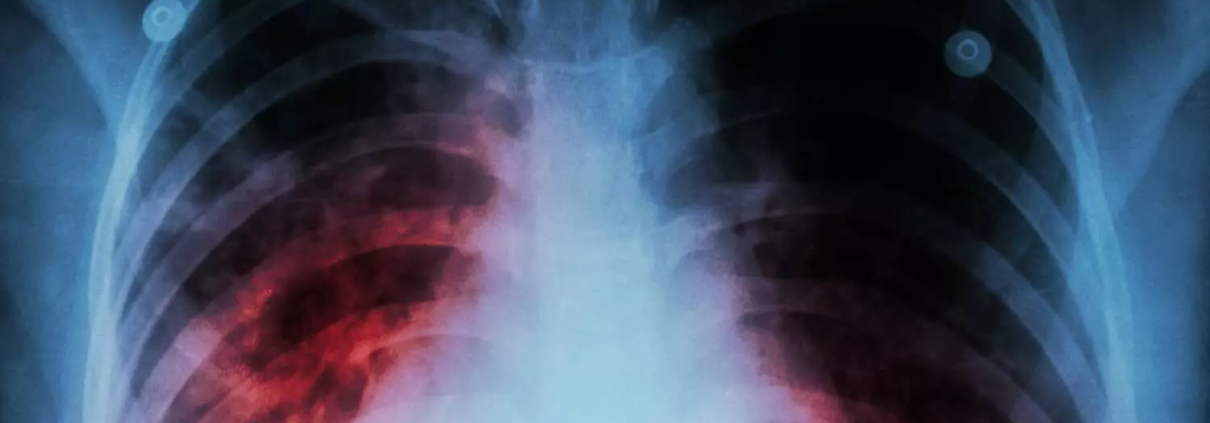Pamrevlumab Shows No Significant Benefit in Slowing Lung Function Decline in Idiopathic Pulmonary Fibrosis: JAMA

Researchers have found that pamrevlumab, a monoclonal antibody, does not significantly slow the decline in lung function for patients with idiopathic pulmonary fibrosis (IPF) compared to a placebo. This conclusion comes from a phase 3 randomized clinical trial aimed at assessing the efficacy and safety of pamrevlumab for treating IPF. The study was published in JAMA by Ganesh Raghu and colleagues.
Current treatments for idiopathic pulmonary fibrosis, such as nintedanib and pirfenidone, slow the progression of the disease but are often associated with adverse events that can affect medication adherence. Pamrevlumab, a fully human monoclonal antibody that inhibits connective tissue growth factor, showed promise in phase 2 trials by attenuating disease progression with minimal adverse effects. This phase 3 study aimed to evaluate its effectiveness and safety in a larger patient population.
The study included 356 patients aged 40 to 85 years with IPF who were not receiving nintedanib or pirfenidone at enrollment. Patients were recruited from 117 sites across 9 countries between July 18, 2019, and July 29, 2022. The last follow-up encounter occurred on August 28, 2023. Participants were randomized to receive either pamrevlumab (30 mg/kg intravenously every 3 weeks; n = 181) or a placebo (n = 175) for 48 weeks.
The primary outcome was the absolute change in forced vital capacity (FVC) from baseline to week 48. Secondary outcomes included time to disease progression (defined as a decline of ≥10% in predicted FVC or death), and exploratory outcomes encompassed patient-reported symptoms. Adverse events were also recorded.
• Among the 356 patients (mean age, 70.5 years; 72.5% male; 62.1% White), 277 (77.8%) completed the trial. T
• The study found no significant difference in the primary outcome between the pamrevlumab and placebo groups.
• The least-squares mean change in FVC from baseline to week 48 was -260 mL (95% CI, -350 to -170 mL) in the pamrevlumab group versus -330 mL (95% CI, -430 to -230 mL) in the placebo group, resulting in a mean between-group difference of 70 mL (95% CI, -60 to 190 mL; P = .29).
• No significant difference in FVC change from baseline to week 48 between pamrevlumab and placebo groups (70 mL difference; 95% CI, -60 to 190 mL; P = .29).
• No significant differences between groups in any secondary outcomes.
• Treatment-related adverse events occurred in 88.4% of patients in the pamrevlumab group and 86.3% in the placebo group.
• Serious adverse events were reported in 28.2% of the pamrevlumab group and 34.3% of the placebo group.
• Mortality rates were similar, with 23 deaths in each group (12.7% vs. 13.1%).
Among patients with idiopathic pulmonary fibrosis, pamrevlumab did not result in a statistically significant difference in the primary outcome of FVC decline from baseline to week 48 compared to placebo. These results suggest that pamrevlumab may not offer additional benefits over existing treatments, underscoring the need for continued research into more effective therapies for IPF.
Reference:
Raghu, G., Richeldi, L., Fernández Pérez, E. R., De Salvo, M. C., Silva, R. S., Song, J. W., Ogura, T., Xu, Z. J., Belloli, E. A., Zhang, X., Seid, L. L., Poole, L., Bowler, S., Corte, T., Holmes, M., Thien, F., Wheatley, J., Choi, S.-M., Chung, M.-P., … ZEPHYRUS-1 Study Investigators. (2024). Pamrevlumab for idiopathic pulmonary fibrosis: The ZEPHYRUS-1 randomized clinical trial. JAMA: The Journal of the American Medical Association. https://doi.org/10.1001/jama.2024.8693



